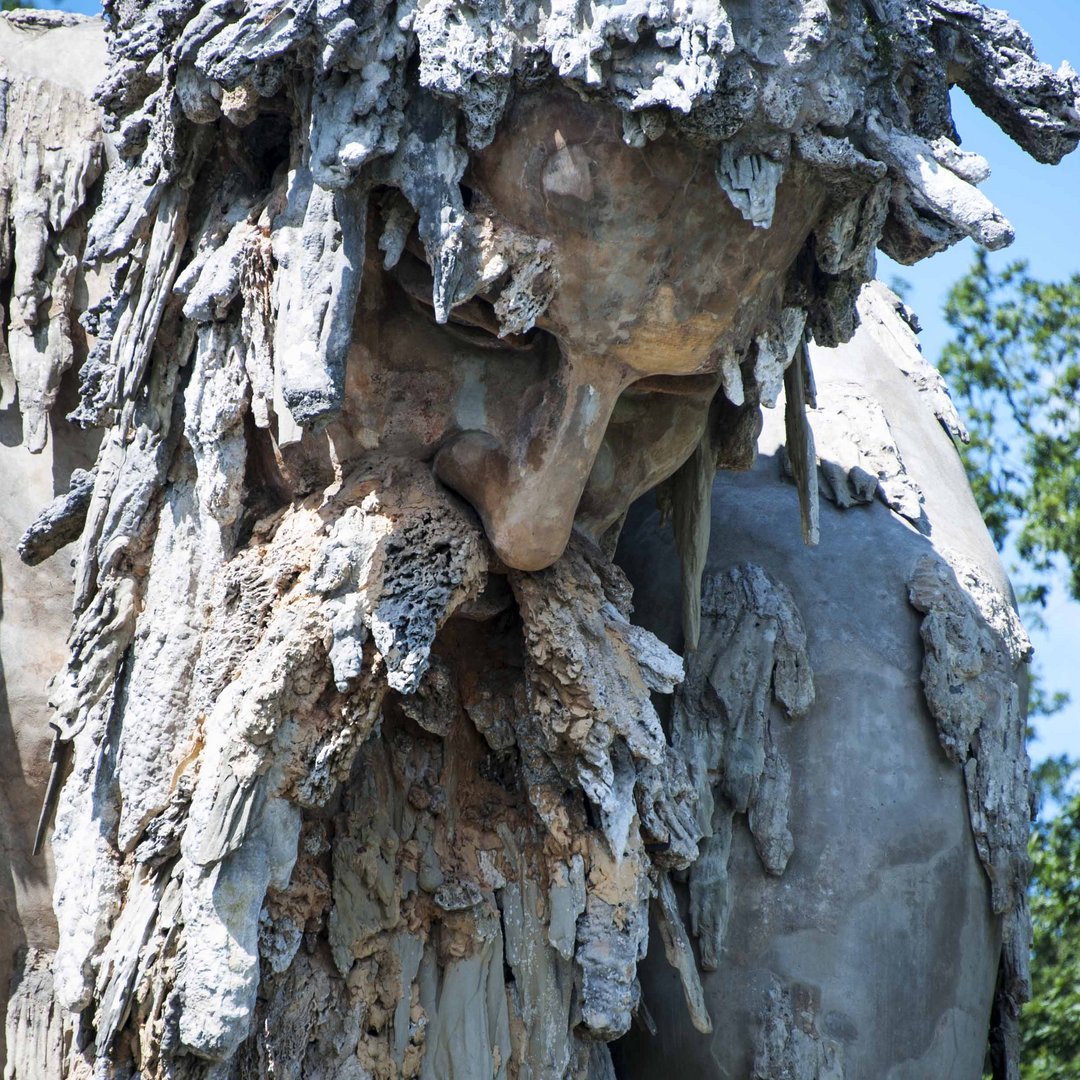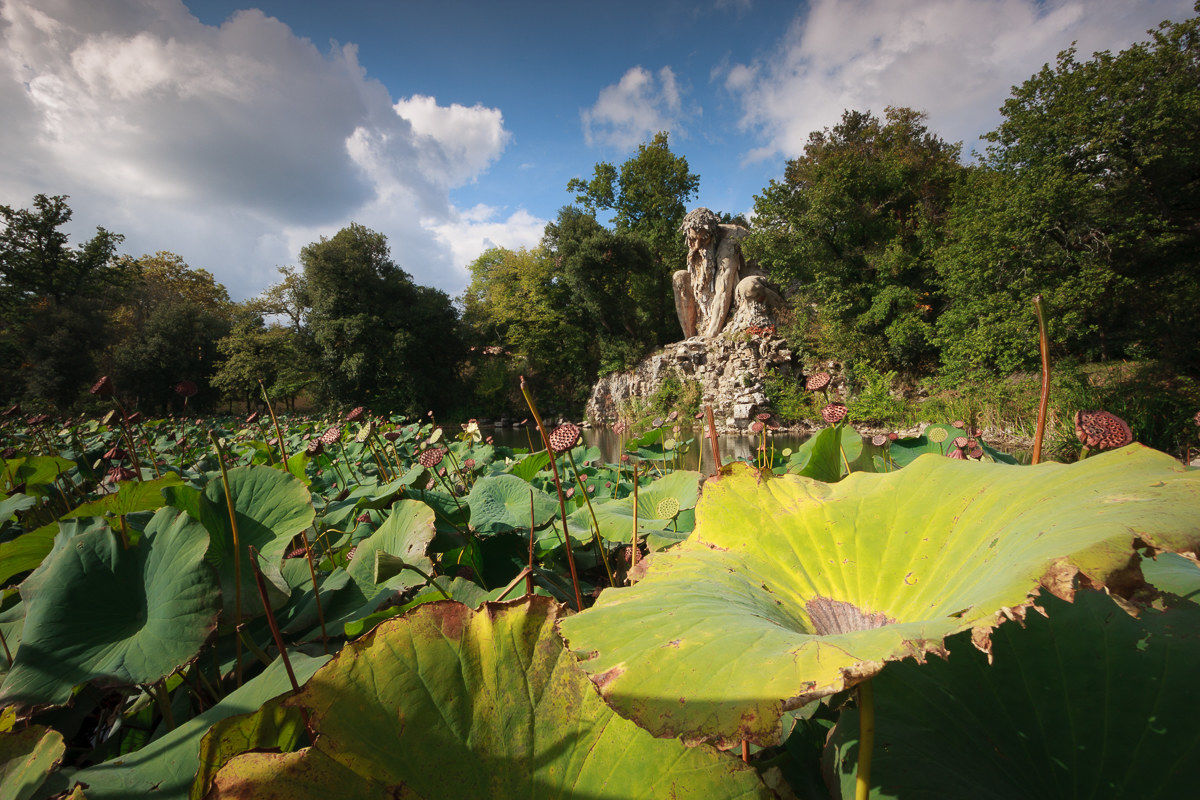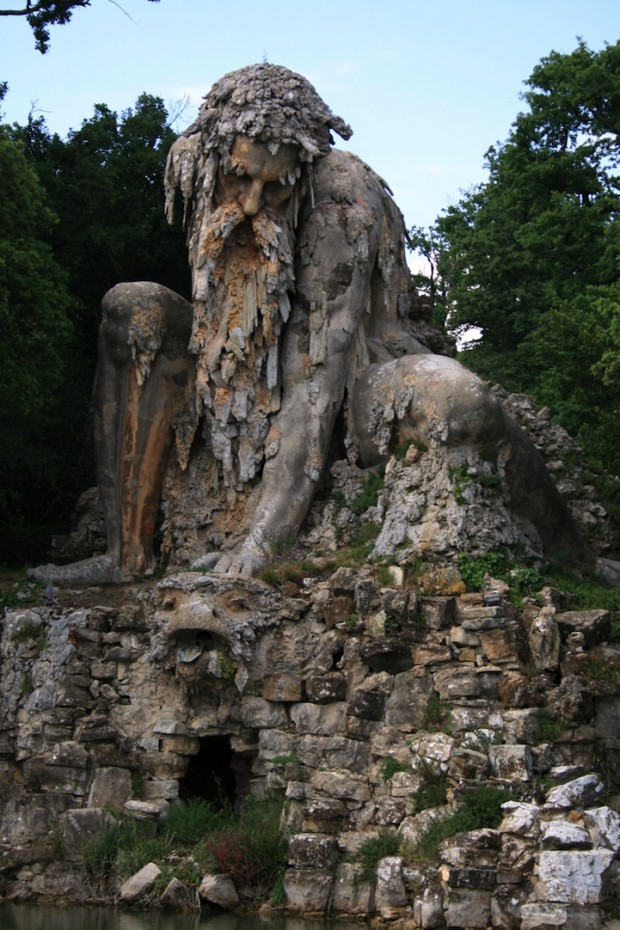11 Hidden Gems in Florence Even Locals Don’t Know About

Il Colosso dell'Appennino Foto Immagini europe, italy, vatican city
Seven miles north of Florence rests a giant treasure from the Renaissance known as Colosso dell'Appennino, or the Appennine Colossus. The 35 foot tall gigantic sculpture is found in Villa Demidoff and was built by the 16th century Italian sculptor Giambologna. He guards the pond in front of him and the grottoes inside his belly.

Il Colosso dell'Appennino, Un Gigante en Italia El Encanto Oculto De
Il Colosso dell'Appennino ("The Apennine Colossus"), detail Though the villa and its fountains were kept in repair, after Francesco's death it was deserted; in the eighteenth century some of its sculptures were removed to adorn the extension of the Boboli Gardens, and the place was left to fall into decay; by 1798 a German visitor was.

Giambologna The Appennine Colossus, 15791580 Beautiful places to
Il Colosso dell'Appennino di Giambologna rappresenta un gigante di pietra con le sembianze di un uomo anziano accovacciato sulla riva di un lago, che viene raffigurato in una posa molto realistica e suggestiva, mentre con la mano sinistra blocca un mostro marino che si affaccia sullo specchio d'acqua.

Il Colosso dell'Appennino JuzaPhoto
Colosso dell'Appennino, or the Appennine Colossus, is a giant 16th-century Italian sculpture that sits in the park of Villa Demidoff just north of Florence. The structure was first erected in 1580 by Italian sculptor Giambologna. The colossal figure is placed like a guardian of the pond in front of him.

Colossus from Park of Pratolino
The Appennino in a photo from 1911. If the Colosso dell'Appennino had been built in a grand piazza in Florence, perhaps it would be highly recognized as a masterpiece. This magnificent sculpture may have been one of the most talked-about Italian sculptures, unfortunately, it remains a mysterious treasure .

il colosso dell’appennino la gigantesca scultura del '500 del
Oct 12, 2015 Ian Smith This massive 'stone giant" that stands 35 feet tall within the park of Villa Demidoff over the grounds of Villa di Pratolino in Tuscany, is a 16th Century sculpture known as Colosso dell'Appennino, or the Appennine Colossus.

The Apennine Colossus in Florence . Created by sculptor Giambologna in
This epic colossus, half man, half mountain, was erected in the late 1500s by renowned Italian sculptor Giambologna as a symbol of Italy's rugged Appenine mountains. This mountain god, fittingly named Appennino, stand 35 feet tall over the ground of the Villa di Pratolino in Tuscany.

Il Colosso dell'Appennino Lion sculpture, Nature, Natural landmarks
The Apennine Colossus, also known as Colosseo dell'Appennino or The Giant of Pratolino, is a large statue of a giant sculpted but artist Giambologna between 1579 and 1580. The statue represents a bearded older man crouching down on one knee and pushing the head of a beast into the ground.

Pratolino, boom di visite al Parco delle Meraviglie Città
Particolarità del Colosso è quella che il pensoso gigante sembra uscire dal laghetto, un effetto studiato ad arte dal Giambologna che ha ricoperto di fango, licheni, fontane e creazioni.

Colosso dell’Appennino (Appennine Colossus) Villa Demidoff di
The "Colosso dell'Appennino," created by Flemish sculptor Jean de Boulogne, better known as Giambologna, is a breathtaking work of art that serves as a personification of the Apennine mountains. Completed in 1580, this colossal sculpture not only showcases Giambologna's artistic prowess but also conceals a fascinating secret within its.

Colosso dell’Appennino YouTube
Il colosso dell'Appennino è una statua in pietra alta circa 14 metri, [1] situata nei terreni di Villa Demidoff a Vaglia, in Toscana. Venne realizzato negli anni ottanta del Cinquecento dallo scultore fiammingo Jean de Boulogne (meglio noto come Giambologna ), con l'intento di rappresentare gli Appennini.

Il Colosso dell’Appennino . Gianbologna, 1580 Renaissance gardens
One study suggests that Colosso Appenninico symbolizes the mourning of the High Renaissance — Italy's artistic golden age. The study also mentions that the artwork's patron, Francesco de Medici, had a taste for melancholic yet heroic art.

Colosso dell’ Appennino aka Appennine Colossus, Sculpted by Giambologna
The current villa was built much more recently, in 1872, and the Apennine Colossus was incorporated into the newer structure. The colossus is a great place to visit in Italy if you want to experience an intoxicating blend of art, architecture and philosophy.

Il Colosso dell'Appennino, l'incredibile scultura del gigante del Parco
The Apennine Colossus ( Italian: Colosso dell'Appennino) is a stone statue, approximately 11 m high, [1] in the estate of the Villa Demidoff in Vaglia, Tuscany in Italy. Giambologna ( Flemish sculptor Jean de Boulogne) created the colossal figure, a personification of the Apennine mountains, in the late 1580s.

Il Colosso dell'Appennino, Un Gigante en Italia El Encanto Oculto De
Hidden just north of Florence is a gigantic 16th century Italian sculpture known as Colosso dell'Appennino, or the Appennine Colossus. Like a guardian of the pond in front of him, the giant is in an endless watchful pose, perched atop his earthy seat.

Colosso dell'Appennino (15791580) Giambologna Guardala gr… Antonio
Il Colosso dell'Appennino è una statua realizzata dallo scultore fiammingo Giambologna (Jean De Boulogne 1529-1608) all'interno dell'attuale Villa Deminoff, una tenuta Medicea in località Pratolino, a due passi da Firenze. Il Colosso fu eretto nel 1580 dallo scultore, aiutato da diversi altri maestri d'arte.